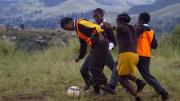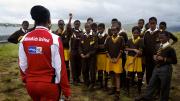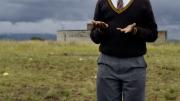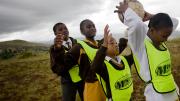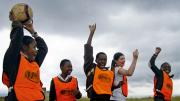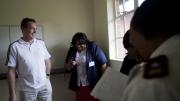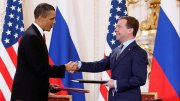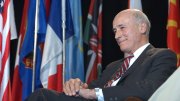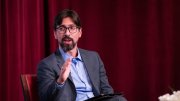It’s a humid, windy, chilly day in Pietermaritzburg, South Africa, but even with this wet, spitting breeze, the seventh graders at Fezokuhle Primary School are excited to be getting outside to play soccer. Before they can play, though, they must take part in a discussion of gender roles, indicating whether they agree with statements such as: “Men deserve to have better-paid jobs than women."
The lesson comes courtesy of WhizzKids United, a nongovernmental organization that uses soccer to teach life skills. Individual lessons address topics including HIV and sexual health, but also broader concepts that underlie healthy decisions: teamwork, leadership, and, yes, gender roles. The main objective, says founder and CEO Marcus McGilvray, is for the children to value education, set goals, and have hope for the future: “Kids may see conditions in the country and say, ‘So what if I get HIV?’ ”
As program leaders Francis Maphanga and Nobuhle Majola—both in their twenties and wearing track suits with the WhizzKids insignia—lead the discussion, the students seem engaged, not as though they merely are biding their time until the game can begin. They “vote with their feet,” arranging themselves in groups corresponding to “agree,” “disagree,” or “undecided” in response to each statement the leaders read.
In response to the statement about gender and pay, 18 students go to the “disagree” side; six, all boys, indicate that they agree. The leaders ask one student from each group to explain their choices. Answering in Zulu, one of the boys from the “agree” group argues that men should earn more because they need to look after their wives and children. A girl from the “disagree” group says, in English, that men will waste the money on drinking and gambling, but women will use it to buy food.
Only four students agree with the next statement: “A man should be allowed to have many sexual partners.” A boy who disagrees explains: “If a man sleeps with another woman he gets HIV and brings it home to his wife.” But one of the boys who agrees protests: “It is natural. No one can change men. It’s how they are.”
The next statement also sparks a lively discussion. On “I would find it difficult to ask my partner to use a condom,” the students are evenly split among the three camps. One boy who agrees says that if a woman asked him to use a condom, “I would think she is accusing me of being HIV positive.” Another says he would beat a woman who made such a request. Through all this, the leaders don’t offer judgment on the students’ statements; the point is to get them to explore and discuss opinions honestly. In fact, the soccer game that follows focuses on the importance of playing one’s position on the field, and the ways the different roles (striker, midfielder, goaltender) complement each other. Majola gives the moral of the story at the end: “Although men and women have different roles in life, both are equally important.”
WhizzKids counselors like Maphanga and Majola visit schools once a week for 10 weeks; the program has reached 10,000 schoolchildren in the Durban and Pietermaritzburg areas thus far. In the first lesson, the students are sent out onto the field with no teams, no marked goals, and no instructions, and just told, “OK, play.” The point, says McGilvray: it’s difficult to play the game of life with no rules and no goals.
The lesson on gender roles is an important one in the sequence; McGilvray believes gender inequality is “one of the biggest drivers of the HIV epidemic.” Women may be afraid to ask their partners to use condoms; this is only compounded by women's financial reliance on their husbands, and by widespread acceptance of men’s infidelity.
As idealistic as the Fezokuhle students’ attitudes might seem—such as the young girls who stated, with confidence, that they’d have no trouble asking a partner to use a condom—McGilvray and the life-skills coaches say they believe attitudes are translating into behavior. The program doesn’t end when the 10 weeks are over; children who stood out as leaders are selected to be peer educators. They receive training to lead their classmates in similar lessons, and attend regular meetings with each other and the WhizzKids staff. Through the peer educator conduits and from the children directly, McGilvray and his staff often receive confidences. They have uncovered, and reported to the authorities, “many, many” cases of abuse, he says.
In June, the organization moved into the WhizzKids Health Academy, a $110,000 building in Pietermaritzburg that provides counseling, HIV testing, antiretroviral therapy and support, family planning, rape counseling, and couples counseling. The building includes a computer lab, a kitchen for feeding orphans and other vulnerable children, and its own soccer field outside, measuring 40 meters by 20. Besides providing services to teens, the new facility will serve as a recruitment site for studies—on teen behavior, the infection rate, and HIV biology in teens—by Harvard researchers.
Although WhizzKids has not received financial support from Harvard or Massachusetts General Hospital—thus far, its funding has come from private companies and FIFA, the international soccer federation—professor of medicine Bruce Walker, who runs an HIV immunology research lab in Durban, has tried to bolster WhizzKids through publicity and helping McGilvray meet potential donors. Walker believes it would be unethical to enlist research subjects without such a gesture of support; furthermore, he says education and prevention initiatives such as WhizzKids are just as important as research in the fight against HIV. While the hunt for a vaccine continues, says Walker, “what can we do to provide for the patients who are helping us understand the immune system, and how can we prevent new infections from occurring?”
Walker, too, believes the generation taking part in WhizzKids now stands to change the course of the HIV epidemic in their country. “Knowledge is power,” he says, “and these kids know HIV chapter and verse. They know what the risks are for becoming infected. They know how to protect themselves.”
